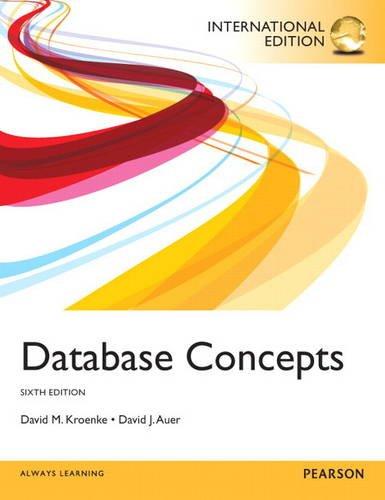Answered step by step
Verified Expert Solution
Question
1 Approved Answer
Make supports macros, also called variables. Some common macros have standardized names: CC is the name of the compiler CFLAGS contains compiler flags, e .
Make supports macros, also called variables. Some common macros have standardized names: CC is the name of the compiler CFLAGS contains compiler flags, eg CFLAGS Wallstdc LDLIBS contains libraries to be included when linking, eg LDLIBS lm links the math library Special macros begin with a dollar sign and do not need to be surrounded by parentheses. See http:wwwcprogramming.comtutorialmakefilescontinued.html for more information. They can be used to avoid repeating target names and dependencies: $@ is the name of the target, often used after the o flag. $ stands for all dependencies, which is useful for linking rules. $ stands for the first dependency, which is useful after the c flag in compilation rules. Define the CC CFLAGS, and LDLIBS macros in your makefile with the appropriate values. Comment out the make rules that were added in section and replace them with new rules that use these macros and the listed special macros wherever possible. This final version must be the one that runs when make lab is called from the command line.
Step by Step Solution
There are 3 Steps involved in it
Step: 1

Get Instant Access to Expert-Tailored Solutions
See step-by-step solutions with expert insights and AI powered tools for academic success
Step: 2

Step: 3

Ace Your Homework with AI
Get the answers you need in no time with our AI-driven, step-by-step assistance
Get Started


